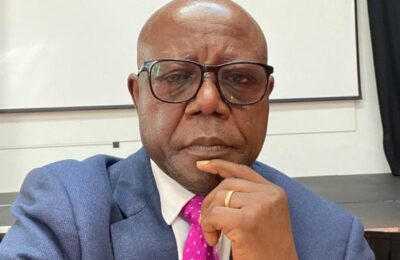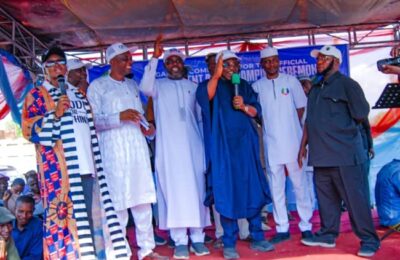History may yet remember this chapter not by the ballot but by the shadow that cast it—Tinubuism: the new gospel of power echoing from the jagged edges of Lagos into the trembling chambers of Abuja. Nigeria is no longer governed—it is maneuvered. Power is no longer served—it is traded. Under Tinubuism, politics has morphed into a coded dance of survival, loyalty, and carefully crafted silence.
From the hour Bola Ahmed Tinubu raised the presidential staff, Nigeria slipped into a political rhythm that carries the smell of aged cunning and the choreography of cartel wisdom. This is no ordinary democracy—it is Jagaban’s chessboard. Each piece moves not by ideology, but by familiarity, lineage, and quiet obedience. Appointments? Tribal favours sealed in Lagos parlours. Reforms? Economic ambushes disguised as rescue missions.
The removal of fuel subsidy—sold to the masses as bitter medicine for a better tomorrow—has become an affliction that crushes bone and hope alike. The cost of living dances like wildfire in a harmattan bush. The poor man in Lokoja cannot buy garri. The market woman in Umuahia no longer smiles. Civil servants wait, not for payday, but for a miracle. Tinubuism, they now say, is a ladder with no rungs for the common man.
Yet, the architects of this regime remain loud in silence and quiet in command. Jagaban himself has become a political phantom—seen only in ceremonial frames and presidential addresses wrapped in ambiguity. The true power lies not in what he says, but in what he withholds. His language is coded loyalty. His silence is strategic thunder. His absence is a kind of omnipresence.
Beneath the surface, Nigeria is burning with questions. Why has the Nigerian Security Organisations/ anti-corruption war become a selective opera? Why do those with ties to the ruling altar escape judgment while scapegoats are paraded before the crowd? Why is the Central Bank now a tool of political correction rather than financial stabilization? Why has insecurity become a national anthem sung in Borno, Plateau, Benue, and Zamfara?
Tinubuism, like a masquerade, dazzles with old robes stitched in the days of NADECO and June 12. But beneath the regalia lies a new gospel of survival politics. Old soldiers wear new uniforms. Enemies become “brothers for now.” Friends of yesterday are sacrificed on today’s political altar. It is the politics of rotation without regeneration—change of faces, not of philosophies.
The National Assembly—once the conscience of the people—has become a theater of affirmation. Laws are no longer debated; they are rubber-stamped. Dissent is not suppressed by force but by favor. Critics are not arrested—they are absorbed, appointed, and silenced. Under Tinubuism, opposition dies not by fire but by friendship.
Regional tension simmers beneath the surface. The northern bloc watches in guarded silence as southern loyalists fill sensitive positions. The South-East, ever marginalized, finds no new voice in the new order. The South-South counts losses in environmental neglect while oil revenue continues to flow upward without equity. Tinubu’s federal character is more mathematical than moral.
Still, the illusion of unity is crafted by ceremonies. A ribbon here, a handshake there. But Nigerians know better. They smell betrayal from afar. They taste neglect in their soups. They hear deceit in every radio jingle. They live with promises that never landed.
The opposition? Fragmented. The PDP still mourns its lost crown. Labour rides on youth dreams without structure. The middle class is fleeing. The poor are praying. And the rich are relocating their investments while quoting patriotism. Under Tinubuism, Nigeria is a wounded lion—roaring less, bleeding more.
Yet all is not lost. The soul of Nigeria still weeps for redemption. In the spirit of Apostle Paul, the nation groans with labor pains, hoping that from this wilderness may rise a Moses with no godfather, no bullion vans, no tribal oath—only fire, truth, and courage.
As Prophet TB Joshua once said, “Let love lead, not manipulation.” But today, Nigeria is governed more by manipulation than by mercy. The new rulers did not just inherit a broken nation—they’re now architects of deeper fractures. Politics has become prophecy for sale. Governance is now a gamble.
From “Emi Lokan” to “It is my time,” the Tinubu doctrine has replaced national vision with personal ambition. And now that his time has come, the people ask: What of our time?
The Nigeria of now is trapped between old ambition and new affliction. Tinubuism may survive the storm, but will Nigeria?
– Inah Boniface Ocholi writes from Ayah – Igalamela/Odolu LGA, Kogi state.
08152094428 (SMS Only)




